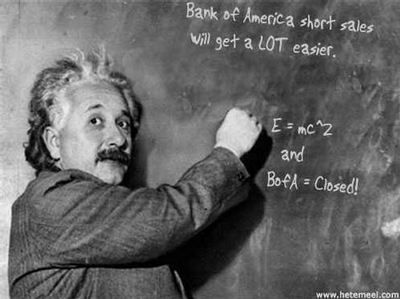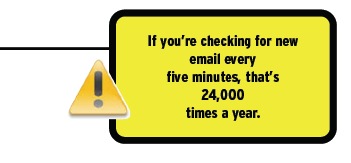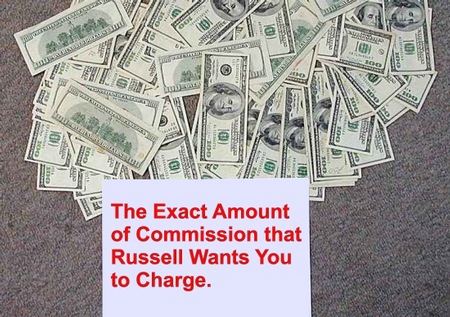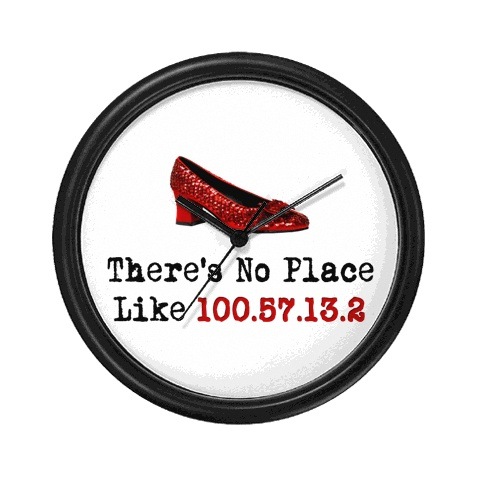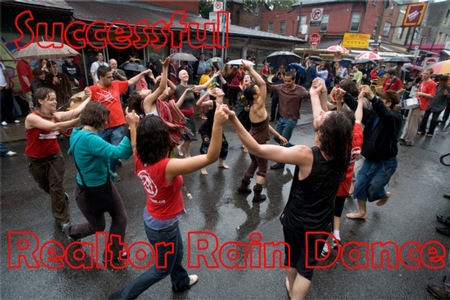
I believe that the success of a rain dance has more to do with timing than the quality of the dancing. A few short years ago the discount real estate companies were being heralded as the wave of the future. "Traditional brokerage" was all but finished. Game over. Now the internet based, lower fee, more modern, forward-thinking companies would dominate the industry.
Virtually all of the real estate companies that proclaimed this the loudest are either already completely out of business or have dwindled down to the point that few think of them as much of a threat to anything (except their own stockholders). Oh sure, a few companies are still attempting more "innovative things" but eventually the venture capital folks will pull the plug on the money hemmoraging and that will be the end of this particular round of remarkable real estate sales innovation.
What happened?
Discount companies in real estate brokerage tend to fall into one of two categories: national or regional companies funded by investors (who believe there is a scalable model) or a small, local, one-man show. Can the one-man show survive? Sure. Pretty much anytime anybody puts enough of themselves into anything they can make it "work". But those people don’t have a business – they have a job. Usually, they can’t even afford much in the way of help, let alone have a business model that is scalable. It seems that the proponents of "let’s charge less" to drive in lots of business often overlook the obvious fact that less means less for them and less to pay for promotion. If you take in less you have to (without increasing your overhead by very much) take in that "less" far more often and in far more volume in order to have "enough".
So how come these companies that were charging less and thereby so successful a few short years ago are now going out of business? Yes, it is true that all companies are having a rough go of it just now but the discount companies have been hit even harder than the traditional brokers. Glenn Cohen, the guy who started the company that later became Foxtons, here in the U.S. had this to say, about a month ago, at Inman Real Estate Connect:
"…because in a down market people are desperate to sell, and in their mind believe — whether it’s true or not, and in some cases it very well is — that the local agent of the big brand name can do a better job for them and they’re less likely to trust the sale of their home with a discounter.
I don’t say it can’t work, and there always will be a small place, I think, for flat-fee MLS and for discount. And if you develop some best practices around it you can do really well, but frankly you can’t make a whole lot of money as a flat-fee discounter, at least the way I view the business model. So it’s not all that enticing for an entrepreneur."
Why would the consumer’s perception of what is a good real estate company or a good real estate agent change? What causes that change? Why can’t a discount company continue to attract the consumer when the market is "bad"? After all, they charge so much less, don’t sellers still want to save all that money? The correct answer? Yes, if they believe they can. In a long-lasting seller’s market they believe they can. When the market turns and favors buyers then sellers stop believing that "just anybody can do it".
This last seller’s market was the longest one in history. We’ve never had a seller’s market that lasted that long before. Historically, about two-thirds of the time it is a buyer’s market and about one-third of the time it is a seller’s market. The "natural" seller’s market was winding down just about the time the dot.com bust happened in the stock market. Then all of that stock market money started chasing real estate and what should have been a buyer’s market turned into a red-hot seller’s market. This was further fueled by Wall Street criminals (like the kind at Bear Stearns) who created and caused the sub-prime mess (and cheated French, Chinese and German bankers out of hundreds of billions of dollars). A direct result of this was that more discount real estate companies came into existence and survived than at any time in history.
To someone who just recently arrived it did look like the game had changed and the "traditional broker" was going the way of the buffalo. If only that seller’s market would last forever. But it didn’t. They never do. Which is the "problem" that discount real estate companies have. They thrive in a seller’s market and can’t survive well (or at all) in a buyer’s market. When it is easy to sell any house the value of a Realtor’s knowledge – in the eyes of the public – goes down. Way down. It doesn’t take much to "become a Realtor". When anyone can "become one" and anyone can sell a house there is extreme downward pressure on commissions and most agents are seen as a "commodity" by the public. Which agent can we hire for the least amount of money (as they are all the same, producing the same result) becomes a common viewpoint from which agents are viewed by sellers.
When the market shifts and there are more sellers than buyers (and this will always eventually occur) it is no longer true that "anyone can do it". Few of the agents who came for the gold rush stay and even many of the old-timers head for greener pastures (as in another line of work) all agents are no longer seen as a commodity. In fact, some are now perceived again as a fiduciary. It is almost impossible for a company that based their entire marketing campaign on "we do it for less" to later be perceived this way. To the exact degree that they were successful with their "we do it for less" message – they will continue to be be stuck with that tag and perceived as "we do it for less" when what the seller now believes is "I need more". Oddly, most individual agents (if they have their eyes open) can turn on a dime and change with the times, it is companies that are stuck. It is companies that ran national PR and advertising campaigns. When it comes to marketing, most agents seldom rise much above mailing postcards to a geographic farm.
The Wall Street types, the investment bankers, the marketing geniuses, the brilliant entrepreneurs who (every time there is a prolonged seller’s market) come out of the woodwork and start their "takeover of the real estate industry" uniformly achieve all of their success only during a seller’s market. Their dance worked. They were brilliant. Then.
This will all happen again. It might look just a little different next time but it will still be the same thing. If you’re young enough you will get to see it again a couple of times.
Remember this post or bookmark it.


